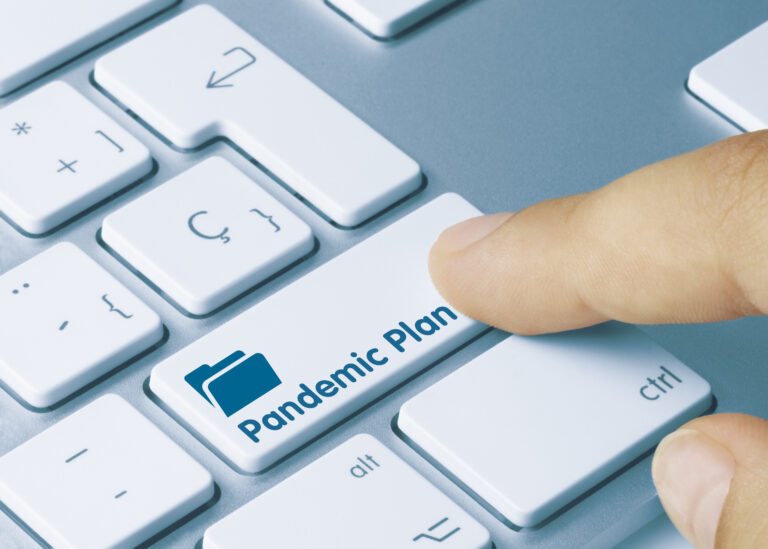COVID Gives Rise to Infectious Disease Plan Regulation
As of today, the number of cases of COVID-19 in the US continues to fall and business are asking how best to get back to the office and what the future will look like. Global organizations such as the World Health Organization are looking at ways to prevent a future pandemic, and here in the US many are asking what they should be thinking about to be ready for a future COVID-19-type event at some point.
At TAG we believe that business should be taking advantage of lessons learned from COVID-19 with a focus on prevention and a strong capability to react in the future. This view has been strengthened in New York where businesses now have a new – and critical – reason for developing an infectious disease prevention program, particularly at this time, those with any facilities in the state of New York.
On May 5, New York amended its Labor Law to require that businesses implement an airborne infectious disease exposure prevention standard based on a model to be developed by the state department of health. The law additionally requires that businesses allow for employee input on its airborne infectious disease programs. While the Health and Essential Rights Act (HERO) Act is specific to New York businesses, we believe that other states will be following it closely to potentially pass similar regulations. In this article, we discuss the key points of the law, TAG’s take on its business impact.
It is important to note that the law’s definition of worksite for which a standard must be developed is broad and includes “any physical space, including a vehicle, that has been designated as the location where work is performed, including employer-provided housing and transportation.” An airborne infectious disease is “any infectious viral, bacterial or fungal disease that is transmissible through the air as aerosol particles or droplets” that is deemed as highly contagious, communicable, and a serious public health risk.
For each worksite, businesses are to implement the state published Model Airborne Infectious Disease Exposure Prevention Standard, or its equivalent, which is to include requirements on procedures and methods for:
- Employee health screenings.
- Face coverings.
- Required personal protective equipment (PPE).
- Accessible hand hygiene stations and break times to use them.
- Regular cleaning and disinfecting of shared equipment and frequently touched surfaces.
- Effective social distancing (as warranted).
- Isolation/quarantine compliance (as required) including separate accommodations in employer-provided housing.
- Compliance with applicable engineering controls such as proper air flow, exhaust ventilation, etc.
- Designation of supervisory employee(s) to enforce compliance.
- Compliance with any regulations on notifying employees and state/local agencies of potential worksite exposure to airborne infectious disease.
- Verbal review to employees of the standard, employer policies and employee rights.
Once developed, the written plan is to be provided to employees, new employees upon hire, and all when reopening after an infectious disease closure. It also is to be posted in a visible and prominent location at the worksite; included in employee handbooks; and made available, upon request, to employees, independent contractors, employee representatives, collective bargaining representatives, and the commissioner of public health.
The law also requires that non-government employers with at least 10 employees must allow the establishment of a workplace safety committee with meetings scheduled at least once a quarter during work hours. The committee is to be co-chaired by employer and non-supervisory employee representatives, with at least two-thirds composed of non-supervisory employees selected by non-supervisory employees.
Each committee member can raise health and safety concerns, hazards, complaints and violations to which the employer must respond; review and provide feedback on plan policies and their adoption; participate in governmental site visits; review employer-filed reports related to safety and health standards; and attend related training without loss of pay.
Non-adherence to the law elicits serious repercussions as employers who fail to adopt a plan can be assessed a civil penalty of $50/day and failing to comply with a developed plan can lead to a fine of $1,000-$10,000.
COVID-19 has changed our world in many ways, not the least of which is the way we look at public health and the protection of workers – and our families. While the pandemic came with temporary state regulations and business protections – from stay-at-home and masking orders to social distancing circles and one-way arrows in retail shops – this is the first permanent regulation of which we are aware resulting from the lessons of the pandemic.
While New York’s regulation may be seen by some as being overly restrictive, TAG sees having an airborne infectious disease plan as comparable to having a food safety plan. While another worldwide pandemic is likely inevitable, it is also the more situational occurrences for which a plan helps you be prepared. A localized outbreak of hepatitis, a site-specific norovirus event, or one employee’s infectious disease can be just as debilitating to your business if you are unprepared.
Through TAG’s extensive client assistance and guidance during COVID, we have developed new Infectious Disease/Public Health programs and can assist in the conversion of your COVID-focused programs; the development and implementation of an infectious disease plan; or the management of a public health crisis, should one arise. Give us a call to ensure you are prepared!





